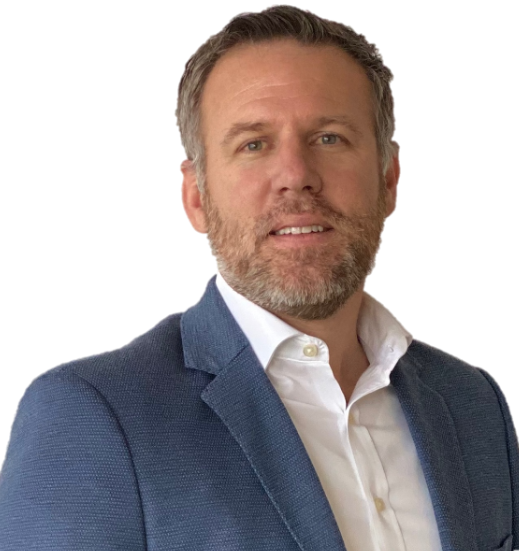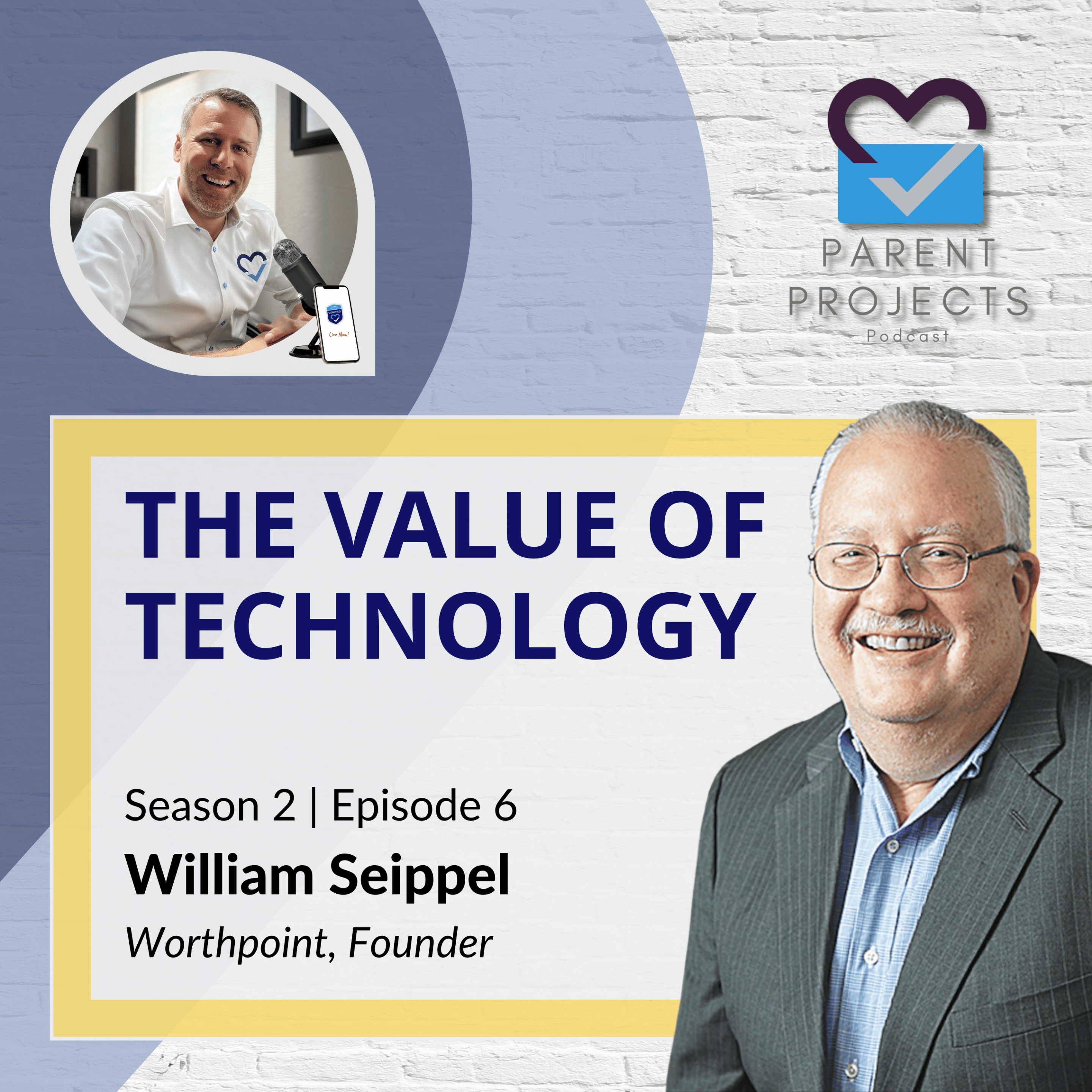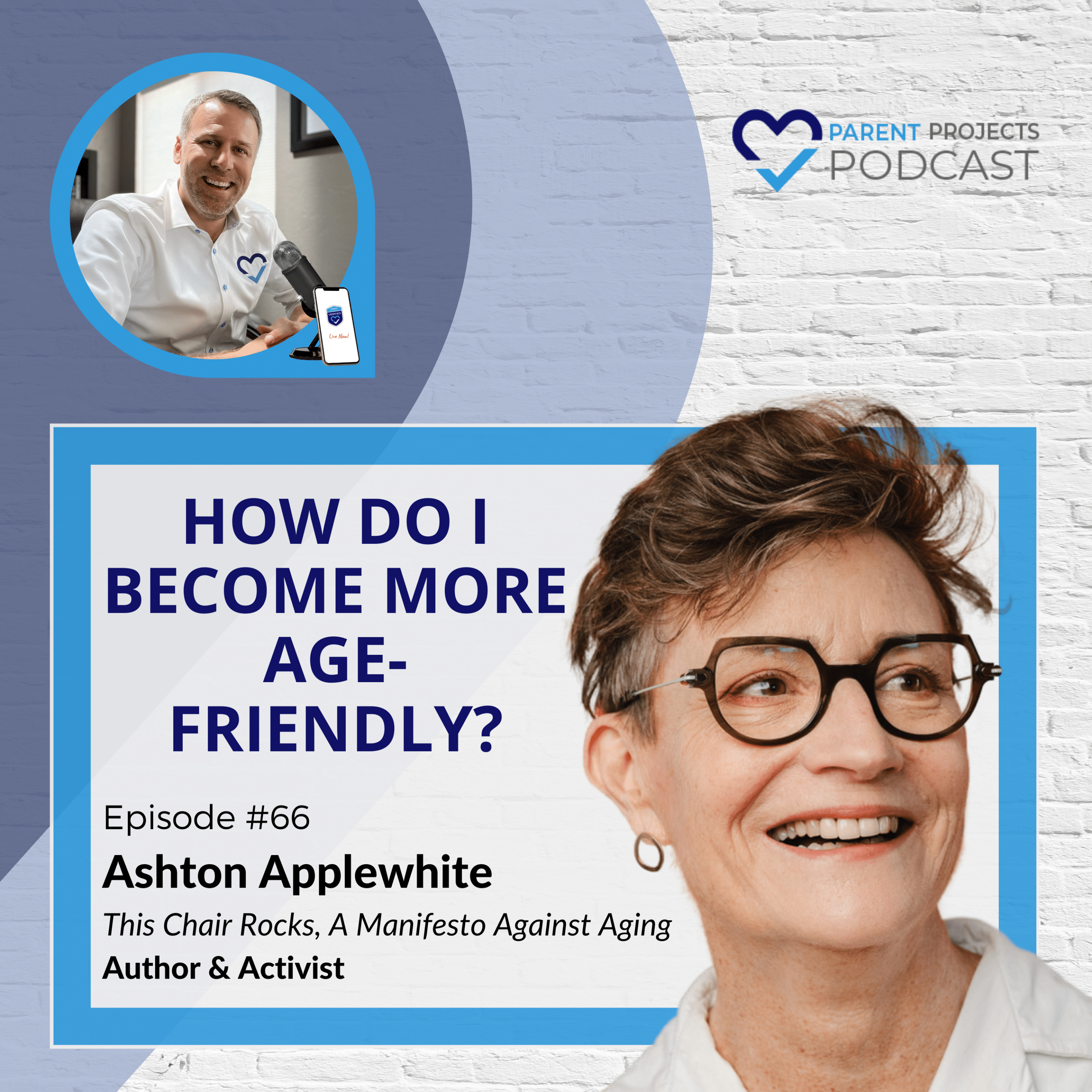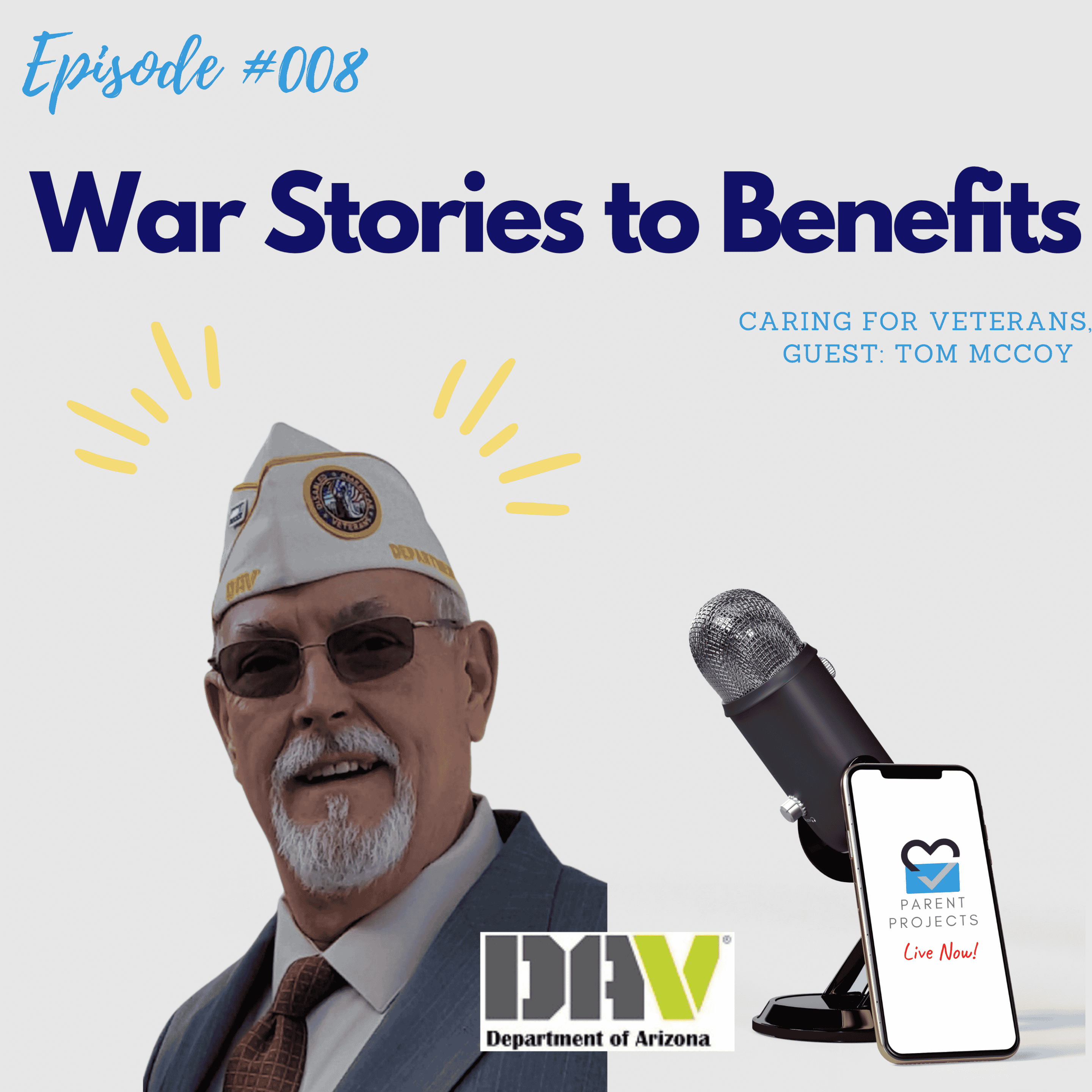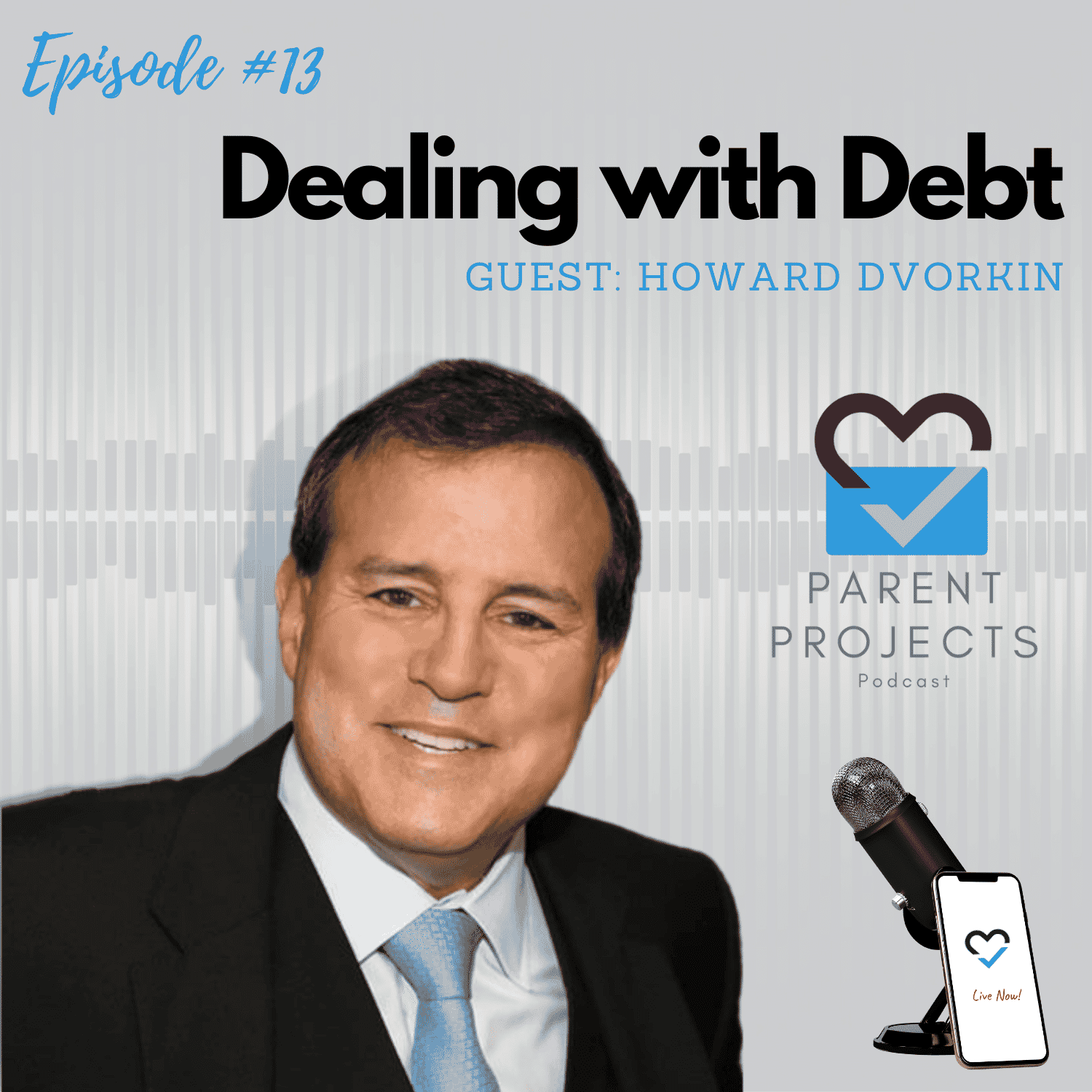Episode Transcript
Speaker 1 00:00:06 You're listening to Parent Projects.
Speaker 2 00:00:11 Hey guys, it's Tony with Will Sippel today, and he c of the founder worth point.com. It's not only the largest provider of information about Art antis and collectibles, but it's consistently one of the top websites that's visited in the United States specifically for families like you trying to understand the value of everything around technology. Help ready for that. Buckle up by For Projects podcast.
Speaker 1 00:01:03 You're listening to parent projects, a family media and technology group production. Now here's your host, Tony Siebers.
Speaker 2 00:01:13 You know, more than 300,000, uh, visits a day is what, uh, worth point is currently taking in. And a lot of them are families like probably yours or families like mine that are working through a parent project. Uh, if you understand your families looking to, to liquidate or in that downsizing move, they need to get a handle on the, the tax accountability of all the stuff around them or trying to just figure out what the value of these things are so you can be equitable and how it gets distributed or what's gonna go out to, uh, a charity and the value to those things. It's critical that you have experts that can help you do that, and I'm extremely happy to have Will with us today, uh, who's gonna give us a glimpse into how technology and their platforms over at Worth point can really help you and your family walk through, uh, this journey of understanding your stuff. Will, Hey, thanks for, uh, thanks for joining us today.
Speaker 4 00:02:06 Thanks for having us on here, Tony. This is exciting.
Speaker 2 00:02:10 Yeah, it's exciting for us too because we love seeing things that make projects, accelerate projects and get things moving in, in the right order. And one of the first things that I recognize as a senior Move manager has to be done when I walk into a project is you gotta take an inventory of what's there and, and to, to try to figure out what's gonna go where and what's at what, you know, what are you gonna do with that? And, and a lot of that comes down to some of the stuff that you figured out in expertise. So I, I, you know, how does, how do you get there? How do you, how did you even think about starting to use technology to understand how a physical thing, you know, how many physical things and attract that stuff and the value of those things. How did you get there?
Speaker 4 00:02:53 Well, it's been a long voyage and we started the company and the concept almost 15 to 17 years ago. Wow. The company itself, 15. And I've always, as an entrepreneur, you tend not to see all the difficulties it takes to get somewhere that, um, I say it's like childbirth. You forget the pain. And my guys told me at the time, cataloging a million items or a hundred million items would be the limit of what technology could do. And I said, well, that doesn't cover a very big fraction of what man has made. We want to cover everything. And so today we have about 4 billion items, or 4 billion images and 700 million items, and it's growing quickly and we throw some things out because they don't fit anymore, uh, with where, what we want to have in the system. But it, it, it's a huge, massive, massive undertaking. And I call it the Internet of stuff and we have a trademark on that. But, um, I want to catalog all the things that Manner Nature has made, and that's a huge project, but it's one that we're capable of doing.
Speaker 2 00:04:09 Well, I gotta tell you, many families Dread doing this. Uh, what was <laugh> What was, other than the fact you've got a solution to help put some of that dread away, um, can, can you tell us about the, what kinds of projects in your life? What led you to tackle this problem in the world?
Speaker 4 00:04:29 I, um, you know, we talked a little bit before the show and I had a little bit of a troubled family history and we we're always struggling for money given my dad was a disabled vet and that, um, so I was always looking for things to buy and sell. And my mom being a, um, uh, second generation American was still strongly Welsh and believed that you needed to have a lot of your value. And she was an artist of all things. But my dad was a rocket scientist and she believed you need to have a large percentage of your wealth and, and real items. And she made me keenly aware of the value of that things could have, which was an important lesson my mom departed to me and that, so we were all, I was always as a kid and even sometimes chased by the police cuz we tended to get things from Parks, <laugh>, you know, the Civil War, golf balls all outta parts and resell them for money. And I became aware that everything had a value.
Speaker 2 00:05:40 Yeah.
Speaker 4 00:05:41 And that I marveled on that later in college and in post-college. How could a Mickey Mantle card be worth a million dollars? It's just a piece of pay board, but it all got down to somebody's perception and rarity and all those other good things we can get into later. But everything has a value in your house, everything. And that you may, your the items in your house may be worth more than your house. And I've seen that Yeah. In some estate. Um, so we just, uh, I had gone to an estate sale a couple weeks ago where it was an antique dealer and she had died and she knew she wasn't leaving her daughter much money, but she was leaving all the inventory. She scrolled away for her life and the first person threw the door paid $18,000 for, um, ninja Turtles in the blister packs. And so don't think it's not worth anything. It's, yeah.
Speaker 2 00:06:43 Yeah. Well, and then connecting, I can imagine, uh, the technology being able to connect that next step of people that might be looking for particular items or searching or, or understand. I mean, that's a, that's a huge context. You know, the, the Ninja Turtles in a blister pack in, you know, a a small, you know, area outside of, you know, Prescott, Arizona, you know, Prescott, Arizona might not have a ton of, of, um, of value within that given market, but you open it up and you give them a much larger market to look through. Um, and, and today the internet gives you access by plenty of platforms to sell on that just about, I think just about anybody can, can sell something on a platform that, uh, once they understand the value of, is that the experience that you see, whether it be Facebook or eBay or, or some of that,
Speaker 4 00:07:32 I, I got disenchanted with a corporate world
Speaker 2 00:07:35 Mm-hmm.
Speaker 4 00:07:36 <affirmative> and that, um, I was raised with a very high set of values and that they tend to be a little bit higher. Um, you haven't gone through the military yourself and me being raised in the military family, we had a very high sense of ethical what was right and wrong and that, um, all the times and that, I'm not saying all the times everywhere, every place, but generally, you'd sometimes shake your head even if you were the C level officer, you know, with some of the decisions that might get made. And so in about 50 in my late forties, I was running into that and I I didn't tell you I had worked, um, I was a senior person at Halliburton, we got acquired
Speaker 2 00:08:22 Oh,
Speaker 4 00:08:23 Okay. And that, um, I had a former, uh, later politician as a boss. And that, um, I left there and left a few other places and that I said, you know, I'm gonna go out and do something on my own. And at that time, it was really a lot of thinking in life and I, I started selling my kids old books online at eBay, and that sim sold about 43,000 items on eBay. Wow. And it taught me that just lying around in my house again, it's a, a calling that you got all kinds of value of stuff here. And I was amazed that I could put up kids use books and people would buy 'em. And some of the ones I had bought at yard sales, and they were older and colorful and, and things, and they ended up going for a lot of money.
Speaker 4 00:09:12 So, uh, by a lot of money, I mean, tens of dollars, twenties, up to 40, $50. Yeah. That's significant money. Yeah. And so for me, I started thinking, well, I can take my tech background and start bringing, if you can see where technology is going over ahead. There were a lot of tech issues we had to solve, or we had to wait for the industry to solve, uh, storage bandwidth, uh, image recognition, all these things that you knew as a technologist were coming and they, they were coming within a decade and we just started, um, building and getting and storing any good images that we could get. And so worth point has an over 15 years of sales history. Yeah. And so we can even run indices on Ninja Turtles and tell you the trend of Ninja Turtles and how they're going up and down. Uh, should you get into Ninja Turtles? Should you get out of Ninja Turtles,
Speaker 2 00:10:14 <laugh> what Sea, the seasonality and then Ninja Engine Turtles,
Speaker 4 00:10:19 Come on, seasonality too.
Speaker 2 00:10:22 And, and those things, you know, in a parent project, those things can matter. You, you may have some of those things that just has to be done now, maybe you're, you're trying to move through, usually you've got some level of flexibility. You can store items that maybe seasonality made a difference on. You can put that someplace else to the right season knowledge allows you to go after those types of decisions. Those, um, you know, I, I know we'll talk in the, in the next segment here, uh, I really want to hear about how, uh, you, you'd made a comment to me talking towards, uh, we spend just a matter of seconds or utilized drone footage, the price of $400,000 home. Uh, but the amount of time, I'm just trying to, to drill that it was so complicated to try to understand the, these other items that were there. Um, we, we just trying to level out or, or, or leverage technology in the same ways to help people at scale. I I really wanna hear that. Yeah. If
Speaker 4 00:11:14 You're something I think that's really important. And looking at it from, you know, I went through my mom's perspective that my mom passed, uh, about 10 years ago, and she was my last surviving parent. And she had called me when my kids were, I, oh gosh, I'm trying to think of middle school maybe or elementary school. And she wanted, uh, one of the secrets out there is I have quadruples. And so, uh, three of 'em are girls, and she wanted to buy gold necklaces, uh, with charms for each of them. So she was hard pressed to come up the money. And she goes to a, a jeweler in the small town she lives in and she wants to sell, sell a $5 Goldies. The jeweler offered her $30 for it. My mom thought that was a home run. She's gonna dollars for a $5 coin.
Speaker 2 00:12:14 Yeah.
Speaker 4 00:12:14 My mom can't conceptualize at that time, not because she was infirm, but just because she was a creature of her, her past and her, what she had learned. She had no idea that there was a quarter ounce of gold in that coin mm-hmm. <affirmative>. So at the time, the gold was at $1,600 an ounce. And she may think she's getting a bargain because she's getting $30 for a $5 gold piece, but she's getting screwed by her jeweler. Um, knowing he knows that just without what date that coin is, that there's $400 of gold sitting there.
Speaker 2 00:12:49 Yeah.
Speaker 4 00:12:49 And so I think it's important for the users to understand, you may quickly be able to think you can size something up or discount it based on your past experiences, but that's not necessarily reality in the market.
Speaker 2 00:13:04 Yeah. Well, and, and why at some level, why take that chance, particularly if and on a downsizing project where this may be, this is the time, this is the time where you, you know, you are looking to leverage or to cash out, or you're liquidating and you're doing that, make sure that you're doing that from an informed basis. Uh, it is definitely worth the time and attention to do that, let alone by going through this process, you're gonna net in a good parent project, you're gonna net a lot of other really great things long term. Like you're gonna have those inventory lists to be able to pick off of, to know, you know, what can fit where in the new place you're gonna go. You, you may even have the picture of, you know, that trip of, Hey, these pictures happen to always be located here, or the fact of picking up the forks, were always on the right hand side, you know, of, of a drawer. Those become the things that, you know, just freebies just from going through this process of understanding what you have and it, and it sounds complicated, but, well, what I'd like to do real quick is I, I'd love to see, uh, you got a, you got a promo for the company that explains what Work Point does. And I'd like to take a second, just kind pause here and, and walk through that is okay if we, we take a break over and headed there.
Speaker 4 00:14:15 Yeah. Let's do it.
Speaker 2 00:14:16 Wonderful. Thanks so much.
Speaker 5 00:14:18 Hidden and Wealth is all around us. It's in the comic book collection, you cherished as a child. It's in the antique glassware collecting dust in your parents' addicts, even in the obscure painting you bought from a one so none artist who's now a big deal. If there's one thing we all have in common, it's that people love stuff. We love collecting it, we love buying, selling and trading it, and we love using it to bring context to a larger story. Whatever you hold in your hands, there are two inevitable questions that rise to the surface. What is it and what is it worth?
Speaker 5 00:14:53 Worth point helps collectors, sellers, and dealers alike discover value and preserve their hidden wealth by providing the most comprehensive tools in the industry to discover what an item is, what it's worth and priced to sell. We sit squarely at the intersection of the world's leading auction houses and online marketplaces to bring you pricing information on what hundreds of millions of items have sold for in the past. So you can buy and sell with confidence, but that's just the beginning. What if you don't even know what an item is or why it's so special or the history behind it? Use the Maps Gallery to search hundreds of thousands of maker's, marks, autographs, patterns, and symbols or maps for short to figure out an it's origin, history, authenticity, and value. You can also continue your search through our digital library, the ultimate research archive offering thousands of digitized books, guides and catalogs on antiques and collectibles right at your fingertips, not ready to part with your items yet. No problem. Store your items in the vault, a digital representation of your items that helps you organize your collections and track their value over time. Whatever your items, whatever your goal worth point helps you capture the thrill of discovering and preserving value in hidden treasures you never even knew you've had. Sign up today to get started. Discovery, what's hidden around you.
Speaker 2 00:16:24 And this week we are with Inc 500, uh, company founder and c e o, uh, will Cpel, uh, at worth point used by individuals and multiple organizations that are looking for those credible valuations on anything from cameras to coins to Ninja Turtles. <laugh> Will, thanks again for joining us today on the show. You, um, you and I got an opportunity to talk, uh, before, uh, about, uh, kind of a range of different projects that tend to pop up out of your business and, and, and opportunities to help people and other things. Um, you know, when when you see a family that's going through either helping a friend, which I think is a project, you know, you're, you're personally going through one of those you've done with a family member you see others doing. Is there, is there anything, what, what are some of the first things people need to think about when they walk in the house, they know mom and dad are gonna downsize and I'm just looking at a lot of stuff. What are, what are those things? What, what's some of the first things that you think would bring comfort they should be thinking about?
Speaker 4 00:17:27 I think you have to, it's, and it's hard to set aside the grief from setting aside the reality of what you have to do. And I know it was a little harder for me to approach dealing with my mom's situation. Um, you know, I, I have, you, you and I talked about, it's usually the oldest daughter that deals with these things. Uh, for me, my sister had some challenges. She's a little older than me and, and wasn't able to do this. So, uh, I did it. Um, my brother had already passed and that, um, it was hard getting through that first moment of emotion that you're walking into this house that used to be more of a, a live physical object to you cuz it was your mother for God's sakes.
Speaker 6 00:18:26 Yeah.
Speaker 4 00:18:27 Um, than then all of a sudden you're there to take it apart. And my mom lived in a small main town, so I can tell you the first thing I did <laugh> was to go down to the corner store and get a bottle of booze and go back and have, have a, um, not a lot, but you know, just a, some sipping whiskey while I, I adjusted to, this is my reality and let's get started. Yeah. It, it was easier going into a friend's house, uh, who was still alive at this point, but moving to assisted living and saying, uh, Jim, what are your expectations out of this? Let's talk about it. Uh, because it's his house, his things his wife's is, is, um, uh, having challenges, uh, and had already moved into living assisted living, uh, very heavy assisted living. I guess my mom says, well, you don't come back. That's what she's used to say. You know, there was assisted living, then there's area where you don't come back so and so, um, and understanding what were his goals and what were his realities. And the thing that shocked me is he had to be out in 30 days and I did not know this. I went up to help him without realizing, let's understand the time deadline. Let's understand your expectations,
Speaker 4 00:20:00 Let's discuss that these expectations are realistic. Uh, he was getting a lot of pressure to sell the contents with the house.
Speaker 6 00:20:11 Mm-hmm.
Speaker 4 00:20:11 <affirmative> I didn't think was fair. And we discussed that we got the realtors and the buyer to adjust the price upwards by six figures because I think they were getting too good of the deal, let alone you're, we're not gonna give away all the stuff. Yeah. And so we really first had to take the parameters and what did we have to deal with? And the time also would then dictate how you got rid of things. And I thought Jim's expectations of what the items would bring were more than say they were on the way low side. And so I certainly did not want to step into a situation where you can't help somebody because they have unrealistic expectations either time or money, uh, or what you could take with you in your new living.
Speaker 2 00:21:08 Right.
Speaker 4 00:21:09 And so, um, Jim fit all the parameters that we could go in and help him. And we did clear out in the state that was, um, gosh, it was probably a fourth 4,500 square foot house plus a basement and a garage in an area over a garage. And we had it totally cleared in in 30 days. And, you know, I think, think it's fair to say we brought in three to four times what he expected. Uh, you always have those high end items in that house. Everybody has, it's my belief that everybody has items of, of higher value than average in their house. You just gotta find them and certainly fit the case here. And with the help of, of, um, Eric on the work point staff Eric Bradley, we identified a real period copy of the Japanese surrender document from the USS Missouri
Speaker 2 00:22:19 Wow.
Speaker 4 00:22:20 <laugh>. And that the, the lore was that it was real, and the print master on the Missouri printed a few extra copies and that, I believe the excuse at the time that they were no good and had to be scrapped. And obviously he was a place to scrap them, was he printed them upside down with a watermark so they wouldn't use one that had the watermark upside down on the paper. Yeah. And so it, it wasn't probably worth as much as Jim might have hoped, but it certainly, um, brought about six or $7,000 at Heritage.
Speaker 2 00:23:05 Well, and to bringing, to be able to leverage real information and knowledge against what that is to set expectations.
Speaker 4 00:23:11 Yes.
Speaker 2 00:23:12 You know, that and, and, and that's to say, you know what I, you know, one thing to speak in with families, uh, one thing I've learned as a senior move manager as well as an s r s realtor, you know, I, I know that value and cash value, cash value of something is, is really a piece of that. So, you know, you're, you're gonna take this in, this will give you clarity against that doesn't always answer the full mail because when it comes down to emotional value for things gen, especially when you, the more family members you have involved, there are more stakeholders that have touched that thing or, or felt that thing or have memories tied to that thing, um, that could change that, that, that can change value. And you made a comment earlier, I value is really a perception of or in the eye of the beholder or the, a perception of, of somebody else.
Speaker 2 00:23:57 It's what someone, someone really wants to do in, in, in real estate. We say, really the true value is what a ready, willing, enabled buyer and a ready, willing, enable seller come to an agreement on. Um, and I, and I think I, I think you, you know, I don't know for sure, but I, I'd say I've, I've come to the understanding that's generally true across the board for, for any item that's gonna be exchanged in a good, good, fair change. And so giving somebody that that information will allow you to make some better decisions, um, when you're, when you're either letting go of that item or having conversations about it. Um, so I I think
Speaker 4 00:24:33 You're, yeah, we sold about, I mean, we picked pick the best items and we sent them to bricks and mortar auction houses.
Speaker 2 00:24:40 Yeah,
Speaker 4 00:24:40 Yeah. And, uh, that would hopefully have a relevant audience for what we were selling. And we sold everything else in that house online, and it was out of there in 30 days.
Speaker 2 00:24:55 Oh,
Speaker 4 00:24:55 It's every, we used online marketplaces and sold everything in everything. Um, you know, it was kind of amazing.
Speaker 2 00:25:07 Well, and again, once you have an understanding, you can move pretty darn quickly 30 days to be able to clear out a, a property from that. So what looks overwhelming can really be handled with information in a lot of ways. Yeah. We,
Speaker 4 00:25:20 We, I, you know, I've lived in the southeast, um, and that this was up in the mid-Atlantic area
Speaker 2 00:25:29 Yeah.
Speaker 4 00:25:29 And that I, um, went up there with, with a helper and we photographed everything in that house in, uh, two to three days. Then we brought the images back with us and obviously have our knowledge and work point, and we cataloged everything in online marketplaces. And then we went, uh, back up for the close. And one of the things that we did not do, we, uh, is, and this is a safety issue, was disclose the exact address, uh, sure. Until we were ready for pickup, because we weren't there and we weren't sleeping in the house. I don't know if you wanna be sleeping in the house, advertising what you're selling anyway.
Speaker 2 00:26:15 Right, right.
Speaker 4 00:26:17 So we finally disclosed the exact address and were there for the, the pickup and that, um, everything in that house was sold. It was amazing.
Speaker 2 00:26:28 Well, I love, you know, I I, um, I want to give a a moment here in a nod just to say that you know, what you're doing with worth point arming people with that information, giving people a place to go, the fact that you saw a, a head, you know, over a decade ago, and to know that even as the internet was trying to work itself out, uh, with pictures and the technology where it's gonna go the same way we, we work at parent projects to work through some of these web three technologies and you just, you just gotta get in front of it and work. I just really kudos to you and, uh, and, and I, as you know, from, from our end, working down on projects and helping families and projects, I, I honestly, I think what you do has so much value to families that are going through this.
Speaker 2 00:27:15 And, and I have no problem recommending worth point, uh, to anybody that's going through a parent project and they just, they need to get an arm around the value of the things that sit out around them and to make use of, of the site and the products. And you haven't asked me to, you haven't solicited that you even asked me to push that I genuinely put out there because that is, there are so many things that free up so well, I just, I really appreciate you spending time with us today and, and walking through and helping family, um, wrap their head around how they can leverage technology and find that value in the technology. Thank you so much.
Speaker 4 00:27:51 I'll tell you the one thing we want you to come to later,
Speaker 2 00:27:55 Please
Speaker 4 00:27:55 Do. I, I mentioned to you we're gonna have a fashion sale and that, um, we're helping another family or a group of people as a lot of aspiring ballerina ballerinas, um, with the sale of some assets from an estate that are fashion related. And there's gonna be about a, including a thousand hats in the Hatmaker with Susan's on Madison Avenue. She makes hats for royalty in Europe. And so imagine a thousand hats and other assets that we created a tax asset and, uh, for, for some person within estate. And we saved these from the dump.
Speaker 2 00:28:38 Wow.
Speaker 4 00:28:39 So these hats ranged up to costing $6,000 a piece and the proceeds are gonna be going to an Atlanta ballet school. So
Speaker 2 00:28:53 Can we, where, where can we go to get more information? Where can our,
Speaker 4 00:28:56 We'll have it posted probably within two weeks on worth point, and it will be a sale done on eBay and it will conclude with a bunch of derby hats in the early spring that if you're into Derbys at all
Speaker 2 00:29:11 In the derby season, absolutely.
Speaker 4 00:29:14 <laugh>. No, I may even wear one to the Derby. What the hell?
Speaker 2 00:29:18 <laugh>. I think that's fantastic. I love it. Well, well, I, again, I really appreciate you spending that time with us. Tell us where, uh, where can people find you worth, uh, your, your web address and where can they find you on social media if they're looking for
Speaker 4 00:29:32 You? Uh, www.worthpoint.com and we have, uh, under the worth, worth point moniker. We also have, uh, accounts on Facebook Instant Messenger. Uh, you can follow me personally. Will will Sippel on LinkedIn and I'm building my own website to talk about some of the things that I do. And w Worth Point has a YouTube channel as well as I do.
Speaker 2 00:30:01 Brilliant. Well, I look forward to doing a lot more of it and maybe catching you over on that side of the house. Again, brother, thanks for so much for sharing your time, council, and
Speaker 4 00:30:13 Thank you for
Speaker 2 00:30:15 God Bless.
Speaker 7 00:30:19 Well, that's it for the team this week, and thanks for joining us. If you've enjoyed the content, remember to subscribe and to share this episode on the app that you're using right now. Your reviews and your comments, they really help us expand our reach as well as our perspective. So if you have time, also drop us a note. Let us know how we're doing for tips and tools to clarify your parent project, simplify communication with your stakeholders and verify the professionals that you choose. You can find us on YouTube, follow us on Instagram and Facebook. Thanks again for trusting us. Until our next episode, behold and be Held.
Speaker 1 00:30:52 Thank you for listening to this Parent Projects podcast production. To access our show notes, resources or forums, join us on your favorite social media platform or go to parent projects.com. This show is for entertainment purposes only. Before making any decisions, consult a professional. This show is copyrighted by Family Media and Technology Group Incorporated and Parent Projects llc. Written permissions must be granted before syndication or rebroadcast.
